Missouri
St. Louis judge in trans healthcare case steps aside, with critique
The lawsuit, Noe v. Parson, was filed on behalf of the families of three trans people, medical providers, PFLAG & GLMA
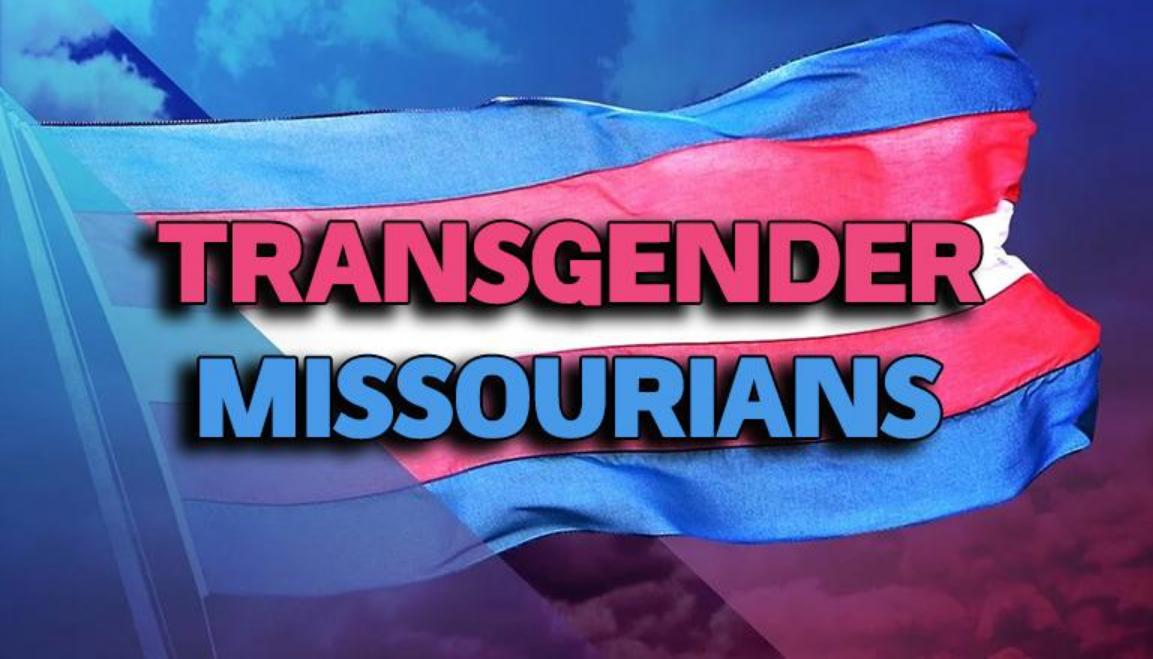
SAINT LOUIS, Mo. – The circuit court judge who denied the petition to block SB 49, which would prevent transgender adolescents in Missouri from accessing evidence-based gender-affirming medical care has agreed to step down from hearing the case.
St. Louis Circuit Judge Steven Ohmer announced at a hearing in the case at the end of last week that he will step aside, but according to the Associated Press Ohmer critiqued the request by the LGBTQ+ plaintiff’s legal representation for a new judge, labeling it “gamesmanship.”
The AP also noted that Missouri Solicitor General Josh Divine argued that the plaintiffs already had been given a new judge — without asking. Plaintiffs’ lawyers said early on that if the case was assigned to Cole County Circuit Judge Daniel Green, they’d seek a new judge. Green was, indeed, assigned the case, then immediately recused himself.
But Ohmer ruled that Green’s proactive action didn’t prohibit the plaintiffs from exercising their right to a change in judge the AP reported.
“What this case comes down to is much posturing and gamesmanship,” Ohmer said.
Lambda Legal, the ACLU of Missouri, and Bryan Cave Leighton Paisner LLP filed the lawsuit in Cole County Circuit Court in July. Ohmer’s denial of a motion for a preliminary injunction at the end of August allowed Missouri’s new restrictions on gender-affirming care for transgender youth to take effect.
The law, which took effect Aug. 28, had provisions that included that physicians who violated the ban were at risk of losing their medical licenses and health care providers could have faced civil lawsuits for prescribing hormones and puberty blockers to minors.
The Kansas City Star noted that the law also would have affected adults, prohibiting Missouri Medicaid dollars from covering gender-affirming care and banning prisons and jails from providing gender-affirming surgeries.
The Associated Press reported that although it allows exceptions for those who were already taking those medications before the law kicked in, the fallout was fast: Both the Washington University Transgender Center at St. Louis Children’s Hospital and University of Missouri Health Care in Columbia stopped prescribing puberty blockers and hormones for minors for the purpose of gender transition.
“SB 49 is the latest chapter in Missouri’s relentless attacks on transgender people, and the stories of the families challenging the law demonstrate the immense, devastating harm it is already inflicting on their lives,” said Nora Huppert, Staff Attorney at Lambda Legal. “SB 49 would deny adolescent transgender Missourians access to evidence-based treatment supported by the overwhelming medical consensus. This law is not just harmful and cruel; it is life-threatening.”
“On its face, the law enshrines discriminatory practices in our health care system by specifically denying transgender Missourians under the age of eighteen access to evidence-based gender-affirming medical care while stripping parents of their fundamental right to make medical decisions for their children,” said Gillian Wilcox, Deputy Director of Litigation at the ACLU of Missouri. “Extreme politicians in Missouri, like the Attorney General, have made known their desire to ban gender-affirming care throughout the State. This legislation targets very specific, vulnerable populations – young people, those who access health care through Medicaid, and incarcerated individuals – to replace private medical decisions with the will of politicians in Jefferson City.”
Ohmer was appointed by the Missouri Supreme Court to preside over the lawsuit.
The lawsuit, Noe v. Parson, was filed on behalf of the families of three transgender people, Southampton Community Healthcare and two of its medical providers, and two organizations representing hundreds of families and health professionals across the state. PFLAG is the nation’s first and largest organization dedicated to supporting, educating, and advocating for LGBTQ+ people and those who love them. GLMA is the oldest and largest association of LGBTQ+ and allied health professionals, including those who treat LGBTQ+ patients.
Additional reporting by the Associated Press and the Kansas City Star
Missouri
Planned Parenthood will fight Missouri AG on trans youth records
Lawyers representing Planned Parenthood and the Missouri AG argued Monday over HIPPA protections during a St. Louis Circuit Court hearing
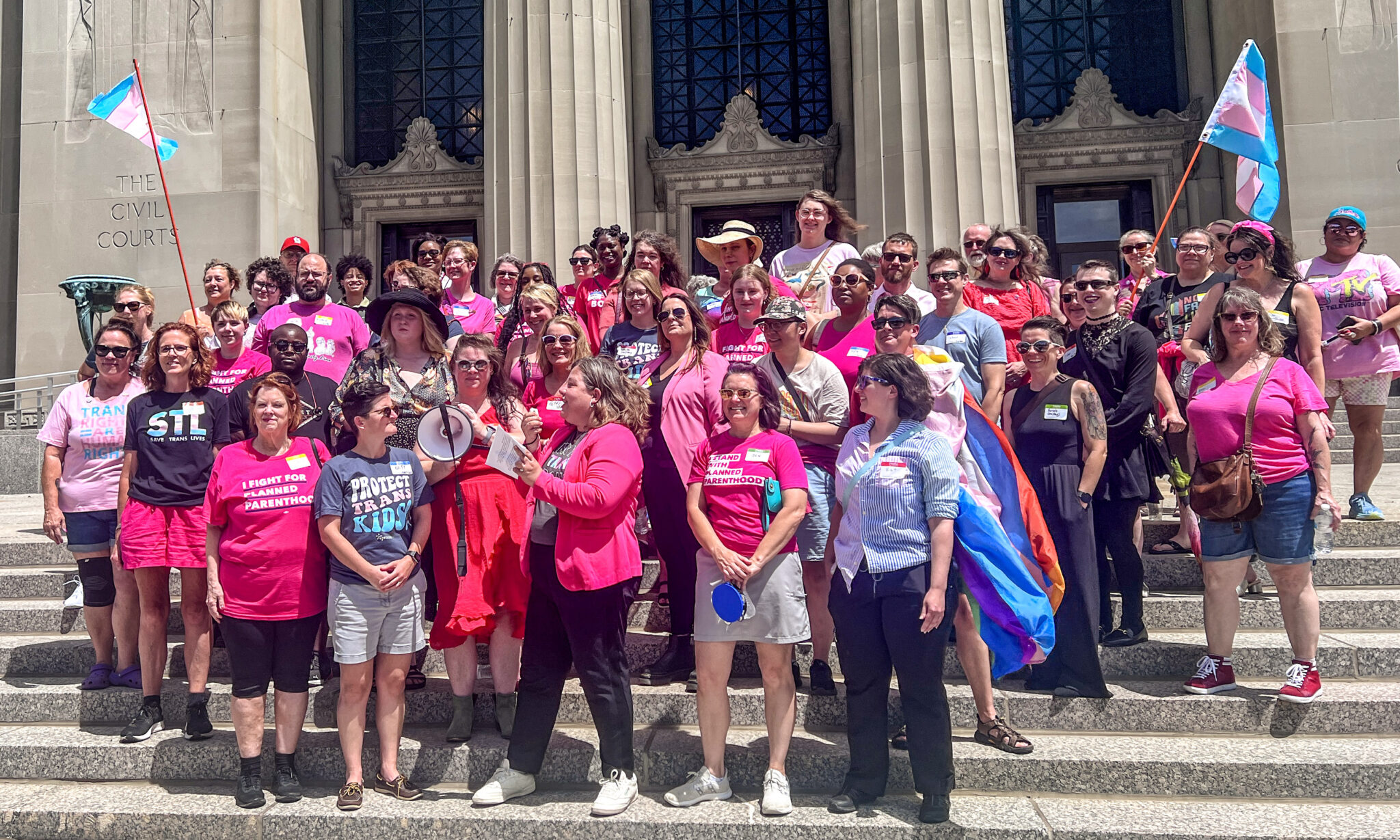
By Annelise Hanshaw | ST. LOUIS, Mo. – A circuit court judge heard arguments Monday over whether the Missouri attorney general’s efforts to access medical records of transgender youth violate privacy protections.
Monday’s hearing was convened at the request of Bailey in the hopes that the court would amend a previous order that requires patients to waive HIPAA rights before their medical records could be shared. If they don’t waive HIPAA, their documents would be exempt from the attorney general’s request for medical records.
HIPAA, which stands for the Health Insurance Portability and Accountability Act, protects patients from their providers disclosing their personally identifiable health information.
St. Louis Circuit Court Judge Joseph Whyte did not immediately rule following the hearing. Richard Muniz, interim president and CEO of Planned Parenthood Planned Parenthood of the St. Louis Region and Southwest Missouri, said if the decision is unfavorable, his organization will appeal.
“Our commitment to our patients is that we will fight this as long as we need to,” Muniz told The Independent. “Today, we’ve already signaled that we are going to appeal because we think that we shouldn’t have to turn over documents, especially patient records, but we shouldn’t have to partake in this investigation at all.”
Bailey launched his investigation in March 2023 looking into gender-affirming care of minors after the affidavit of Jamie Reed, who worked at Washington University’s adolescent Transgender Center. In April, another circuit court judge ruled that Bailey may continue his investigation — adding that patients must waive HIPAA rights before their private health information could be shared.
Children’s Mercy in Kansas City, Washington University and Planned Parenthood Great Plains are also arguing against the attorney general’s civil investigative demands.
The April decision, beyond giving patients the ability to protect their medical records, granted Bailey power to investigate Planned Parenthood under the Missouri Merchandising Practices Act, a state law that allows the attorney general’s office to investigate deceptive marketing practices.
Matthew Eddy, an attorney representing Planned Parenthood said during his arguments Monday that the attorney general’s authority under the Missouri Merchandising Practices Act has yet to be fully litigated.
Health care providers are fearful of what the attorney general might do with more information. Prior reporting by The Independent revealed Bailey’s use of the Division of Professional Registration, which is investigating therapists as a result of a complaint from his office.
After the attorney general’s office received a list of minor patients that received care at the Washington University Transgender Center and other documents, therapists and social workers that had written letters of support for patients to go to the Transgender Center had their licenses at risk. As of early May, 16 of 57 cases were still open.
Hearing
Deputy Solicitor General Sam Freeland, representing the attorney general, argued Monday that a federal regulation allows medical records to be released when ordered by the court. He told the judge this exception was “not discussed by the plaintiff.”
“HIPAA has not barred the disclosure of the documents in question,” Freeland argued.
He said Planned Parenthood had the burden of proof to show that HIPAA covers the documents.
Eddy this was “simply not correct.”
“Planned Parenthood has proven the general rule that HIPAA protects disclosure,” he said. “The burden is on the respondent to show that the exception applies.”
Eddy further attacked the premise of Bailey’s investigation, which Freeland argued was not on the table Monday.
He said the attorney general’s civil investigative demands, which Eddy said were titled as an investigation into the Washington University Transgender Center, “had no allegations as to Planned Parenthood’s conduct.”
“He can’t point to a single complaint from a patient, a patient’s parent,” Eddy said.
Eddy said the attorney general “had 54 incredibly broad requests for information.”
“Included in the requests are information that would be deeply sensitive to transgender minors,” he told the judge.
Muniz told reporters one of the requests was for “any document that mentions TikTok,” calling the investigation a “sprawling phishing expedition.”
In press releases, Bailey has expressed a belief that all gender-affirming medical providers are connected.
“I launched this investigation to obtain the truth about how this clandestine network of clinics subjected children to puberty blockers and irreversible surgery, often without parental consent,” he said in a statement following the hearing Monday. “We are moving forward undeterred with our investigation into Planned Parenthood. I will not stop until all bad actors are held accountable.”
Muniz said Planned Parenthood does not have a formal relationship with Washington University, which was the focus of Reed’s affidavit and the beginning of Bailey’s investigation.
Supporters of Planned Parenthood rallied before the hearing, calling the investigation a political attack.
“(Bailey) only wants (the records) so he can politicize gender affirming care and to put a target on transgender and gender-non-conforming patients,” Margot Riphagen, Planned Parenthood St. Louis’s vice president of external affairs, said during the rally.
Katy Erker-Lynch, executive director of LGBTQ advocacy organization PROMO, called the attorney general’s actions “scary.”
“He has pushed credentialing committees of social workers, professional counselors and family and marital therapists to investigate every single provider on the eastern side of the state that has offered a letter of support for a trans or gender expansive kid to receive care,” she said, referencing a Division of Professional Registration investigation that stemmed from the AG’s complaint.
Around 40 people attended the rally, filling the courtroom until a small group were standing in the back. Most wore t-shirts with phrases like “protect trans kids” or “I fight with Planned Parenthood” and filed into the seats behind Planned Parenthood’s lawyers before sitting on the opposing side.
“Thank you,” a few people told Eddy as they walked out of the St. Louis courtroom.
******************************************************************************************

Annelise Hanshaw writes about education — a beat she has covered on both the West and East Coast while working for daily newspapers in Santa Barbara, California, and Greenwich, Connecticut. A born-and-raised Missourian, she is proud to be back in her home state.
******************************************************************************************
The preceding article was previously published by The Missouri Independent and is republished with permission.
The Missouri Independent is a nonprofit, nonpartisan news organization dedicated to relentless investigative journalism and daily reporting that sheds light on state government and its impact on the lives of Missourians. This service is free to readers and other news outlets.
We’re part of States Newsroom, the nation’s largest state-focused nonprofit news organization.
Missouri
Missouri appeals court sides with trans student in $4 million lawsuit
Judge rules that Blue Springs School District discriminated against former student by barring him from boys’ locker room

By Annelise Hanshaw | KANSAS CITY, Mo. – After a decade-long legal battle, a transgender man and former student of the Blue Springs School District should receive over $4 million in damages for discrimination that occurred when he was an adolescent, the Missouri’s Western District Court of Appeals ruled Tuesday.
Judge Anthony Gabbert wrote the court’s unanimous decision, ruling that the school district discriminated against the student, identified by his initials R.M.A., on the basis of sex when it barred him from using the boys’ locker room.
A key part of the appellate court’s decision was the factor that spurred the school district’s discrimination.
Attorneys for the Blue Spring School District did not contest that R.M.A. was treated differently, according to Gabbert’s ruling, but said it was because of his “female genitalia.”
“School district employees suggested that R.M.A. had been excluded from the boys’ restrooms and locker rooms because of [the] school district’s belief that he had female genitalia,” Gabbert wrote. “[The] school district did not actually determine the nature of R.M.A.’s genitalia, however, and does not speculate, inspect or otherwise inquire as to the genitalia of other male students.”
The admission of different treatment based on assumed genitalia, Gabbert wrote, was itself discrimination on the basis of sex.
Part of the judicial proceedings included testimony from R.M.A.’s doctor, who said R.M.A. was a male for as long as she has been treating him (which began at age nine).
During his time as a student, R.M.A. received an updated birth certificate with his male gender identity.
School district employees and school board members told R.M.A.’s mother that locker-room access is determined by birth certificate. After she gave the corrected birth certificate to school district officials, R.M.A. was still denied access to boys’ restrooms and locker rooms.
The school board discussed R.M.A’s birth certificate in a closed-door meeting, according to court documents, but never gave his mother a clear answer about the policy.
“The evidence at trial… was that (Blue Springs) School District had an unwritten policy of using birth certificates to determine sex,” Gabbert wrote. “Yet, [the] school district refused to tell R.M.A.’s mother that it would honor a corrected birth certificate stating he is male because (it) wanted to keep its options open in the event R.M.A. was able to obtain a corrected birth certificate.”
R.M.A’s birth certificate was amended in December 2014, around a year after he began asking to use the locker room that aligned with his gender identity and two months after he filed a complaint with the Missouri Commission on Human Rights.
R.M.A. filed the lawsuit in October 2015, starting a complicated legal process. The initial trial court dismissed his claim in 2016, saying the Missouri Human Rights Act does not protect claims on the basis of gender identity. The Missouri Supreme Court, in 2019, reversed this decision and opened the doors for another trial.
A December 2021 jury trial awarded R.M.A. over $4.7 million in damages and legal fees, but attorneys for the Blue Springs School District asked for a “judgment notwithstanding the verdict,” a ruling that allows a judge to usurp a jury’s decision.
The school district argued that R.M.A. only proved that he was discriminated against “because of his female genitalia” and not on the basis of sex.
The trial court judge sided with the school district, which would have spurred another trial. But Tuesday’s decision reverses that judge’s call, returning the case back to the jury’s verdict.
There are other similar cases currently winding through Missouri’s courts, including a lawsuit against the Platte County School District brought by the ACLU of Missouri.
The Blue Springs School District could not be reached for comment by time of publication.
******************************************************************************************

Annelise Hanshaw writes about education — a beat she has covered on both the West and East Coast while working for daily newspapers in Santa Barbara, California, and Greenwich, Connecticut. A born-and-raised Missourian, she is proud to be back in her home state.
******************************************************************************************
The preceding article was previously published by The Missouri Independent and is republished with permission.
The Missouri Independent is a nonprofit, nonpartisan news organization dedicated to relentless investigative journalism and daily reporting that sheds light on state government and its impact on the lives of Missourians. This service is free to readers and other news outlets.
We’re part of States Newsroom, the nation’s largest state-focused nonprofit news organization.
Missouri
Missouri AG targets health care professionals over trans care
Health care professionals and parents of transgender youth are raising concerns about use of private medical records in the statewide probe

By Annelise Hanshaw | ST. LOUIS, Mo. – A state investigation of the Washington University Transgender Center in St. Louis expanded to include therapists and social workers across the state who work with minors seeking gender-affirming care.
Documents made public as part of various lawsuits show that Attorney General Andrew Bailey has obtained a collection of unredacted and loosely redacted records of transgender children, including a list of patients that received care at the Washington University Transgender Center at St. Louis Children’s Hospital.

He is also seeking untethered access to the university’s digital medical records system.
The attorney general’s use of private medical records, and the targeting of therapists and counselors, has interrupted the health care of LGBTQ Missourians and has families worrying about their children’s privacy.
Katy Erker-Lynch, executive director for Missouri LGBTQ advocacy organization PROMO, told The Independent she fears that the pressure will drive health care providers out of the state, especially impacting rural Missourians.
“The attorney general has created a hostile environment for medical providers where they are afraid to stay and practice medicine,” she said.
The saga began last year when Bailey launched an investigation based on an affidavit from Washington University whistleblower Jamie Reed. Bailey is using the affidavit to question other gender-affirming-care providers like Planned Parenthood, which he has said he hopes to “eradicate.”
The probe involves the Missouri Division of Professional Registration, which oversees medical licensing in the state. According to records obtained by The Independent, the agency interviewed 57 health professionals as part of the inquiry and had 16 cases open as of early May.
While Bailey announced the division would assist in the investigation when he first announced it, therapists did not expect to be included — or have their license to practice put at risk.
The division’s chief legal counsel, Sarah Ledgerwood, told The Independent that the division and its boards can’t join other officials’ investigations. When asked about Bailey’s investigation, she said the boards “can only complete investigations based on receipt of a complaint.”
Division Director Sheila Solon said last year that she anticipated complaints as part of the attorney general’s investigation.
Kelly Storck, a licensed clinical social worker with a focus on LGBTQ-positive therapy, was interviewed last year and expressed grave concerns about unredacted medical records of minors being in the hands of a state official who has repeatedly opposed gender-affirming care.
When the division contacted Storck for an interview, she hired a lawyer before meeting with the investigator.
During the meeting, she says the investigator had a small stack of unredacted letters Storck had sent the Transgender Center to recommend clients for gender-affirming care.
Storck recalled senior investigator Nick McBroom telling her he wasn’t fully sure what he was doing, saying she was taking the interview more seriously than it was. He questioned why she had a lawyer.
McBroom asked about the process of writing letters of support, Storck said, opening a file with just a portion of the letters she had sent to the Transgender Center. She said she noticed the documents had green underlines added and asked McBroom if they were his edits. He didn’t seem to know the source of the underlines.
After a 30-45 minute interview, McBroom asked her to write up her process. Through her attorney, she declined, and her case was closed soon after.
McBroom declined to speak to The Independent about the case.
“I still have a lot of distrust about who initiated it,” Storck said, “and who was in my documents.”
Parents of transgender children told The Independent they have heard whispers of other therapists facing investigation.
Multiple providers declined to be interviewed about the investigation out of fear of retaliation. Storck, though, had already faced the attorney general as one of the plaintiffs attempting to block an emergency rule targeting transgender care filed by Bailey last year.
A fight for patient privacy

A legal battle between Washington University and the attorney general’s office shows the records used in the interviews may have directly come from the university itself.
In the attorney general’s office’s response to the litigation, a timeline is laid out of the university turning over three sets of documents. In its second document production, Washington University gave the attorney general a list of patients in a spreadsheet.
“The supplemental production included a spreadsheet titled ‘Transgender Patient data,’” the attorney general’s office wrote. “Which included various workbooks chronicling patient names, encounters and medications, among other information.”
The attorney general’s office has declined to comment about the scope of the investigation and the source of investigative documents. Washington University also declined comment.
People who have received care at the Transgender Center have asked to be notified if their health records are accessed, but many assume some of their information is already in the attorney general’s hands.
The Independent asked Reed if she provided any of the documents to the attorney general.
“I cannot definitively say what the therapists are being handed (or) where it came from,” she said. “We just don’t really know where those things directly came from. The one thing I will add is that any documents that were provided to the attorney general’s office from me were redacted.”
Reed said she did not give any documents that would be stored in the electronic health records software Epic. When asked where else the records could come from, she said, “email or shared drive.”
The records investigators had of Storck’s patients included names, something Reed said she redacted before providing to the attorney general.
Becky Hormuth and her 17-year-old son Levi, who was a patient at the Transgender Center, have been hearing about the scope of Bailey’s investigation for months.
They learned that the attorney general’s office had been looking into Levi’s psychologist’s records and heard about other providers that had interviews related to their support for gender-affirming care.
Levi said the attorney general’s work seemed like “complete government overreach.”
Bailey’s actions, like a tip line about gender-affirming care and an emergency rule that sought to limit access to certain procedures and prescriptions, prompted Hormuth to prepare to move out of state.
“It is very invasive, what he’s doing,” she told The Independent. “The state has already basically disrupted our lives. They’ve disrupted our families, our children’s lives with the legislation that has passed. Then for him to continue going on is even more invasive and damaging.”
When lawmakers passed a ban on gender-affirming care for minors that included a provision that allowed broad medical malpractice claims, the Transgender Center stopped providing Levi’s medication.
Hormuth learned from other parents to make her son’s medication stretch, just in case it would be a long time before a refill.
She had requested an appointment with a provider in Illinois prior to the law’s passage, and Levi was on a waiting list. The center told her at the time that they weren’t taking new out-of-state patients because there was already a large influx from multiple states.
But eventually, Hormuth got a call that they were ready to take out-of-state patients. So, she and Levi make periodic trips to Chicago to go to the doctor.
Levi is old enough to receive hormone-replacement therapy at the Planned Parenthood of the St. Louis Region’s clinics, which accept transgender patients 16 and up for gender-affirming care.
But Hormuth wanted to take her son someplace outside of Bailey’s reach.
“I was absolutely dead set against going to Planned Parenthood locally because I knew that as soon as we would establish ourselves at Planned Parenthood… that (Bailey) was going to come there and start digging through those papers and those personal records,” she said. “I absolutely was not going to give him the chance at any other aspect of our family’s life.”
Both branches of Planned Parenthood in Missouri are also subjects of Bailey’s investigation, according to court filings, despite the attorney general’s office only publicly announcing an investigation into the Transgender Center.
The attorney general is not allowed to investigate medical malpractice claims, but it can look into false advertising under the state’s consumer protection law, known as the Missouri Merchandising Practices Act.
Bailey used that law to file an emergency rule, which he later rescinded before a court case could decide its bounds, and he is utilizing it again to dig into gender-affirming-care providers.
In a case in the Circuit Court of Jackson County, Bailey’s office admits the investigation into the Washington University Transgender Center at St. Louis Children’s Hospital has multiple subjects.
Planned Parenthood Great Plains filed a lawsuit to avoid the attorney general’s civil investigative demands which it argued sought sweeping information about its practice and patients.
In court documents, Solicitor General Josh Divine wrote that the civil investigative demand was looking into the organization and others in addition to the Transgender Center.
“The attorney general is investigating (the Transgender Center) and ‘others in the state’ who ‘may have used deception, fraud, false promises, misrepresentation, unfair practices, and/or the concealment, suppression, or omission of material facts within the scope of the Missouri Merchandising Practices Act,’” Divine wrote. “The attorney general has already made unequivocally clear that (Planned Parenthood) is under investigation.”
Similar arguments are on display in a case between the Planned Parenthood affiliate in St. Louis and the attorney general’s office.
“(Bailey’s) request encompasses hundreds, if not thousands, of patient records concerning treatment decisions, discussions with physicians, mental health assessments and prescription information, among other areas,” Planned Parenthood’s attorney wrote in its lawsuit.
Judges ruled in favor of the attorney general’s office in both cases, which have been recently appealed.
A case filed by Children’s Mercy Hospital in Kansas City against Bailey’s investigative demands also went in favor of the attorney general.
Washington University’s case against the attorney general’s office is yet to be decided.
This fall, the attorney general’s office will defend the state in a case that seeks to reverse a ban on gender-affirming care for minors passed last legislative session.
Storck said the inquiry has compounded anxieties about access to gender-affirming care that patients have following the passage of the ban.
“I really was so afraid that some of my clients were going to be in absolute emergent situations and really struggle to get access to health care,” she said. “My patients have connected with what they need, but it is now an all-day or multiple-day event to get medical care. Previously, they could have gotten it (within two hours).”
******************************************************************************************

Annelise Hanshaw writes about education — a beat she has covered on both the West and East Coast while working for daily newspapers in Santa Barbara, California, and Greenwich, Connecticut. A born-and-raised Missourian, she is proud to be back in her home state.
******************************************************************************************
The preceding article was previously published by The Missouri Independent and is republished with permission.
The Missouri Independent is a nonprofit, nonpartisan news organization dedicated to relentless investigative journalism and daily reporting that sheds light on state government and its impact on the lives of Missourians. This service is free to readers and other news outlets.
We’re part of States Newsroom, the nation’s largest state-focused nonprofit news organization.
Missouri
Drag restrictions debated by Missouri House committee, round 2
For the second year in a row, a House committee debated GOP-backed legislation limiting drag performances as “sexually oriented businesses”
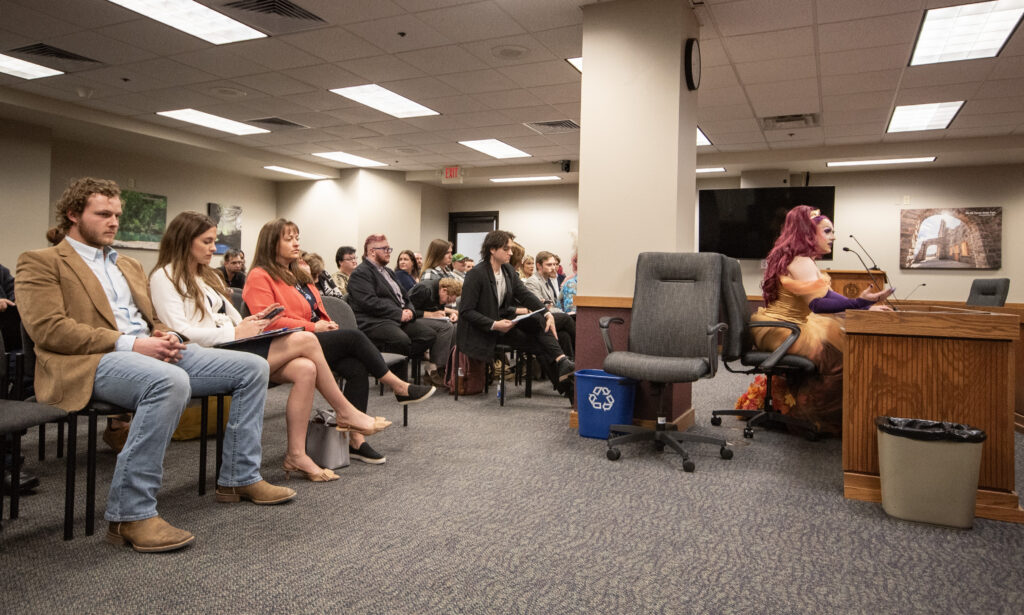
By Annelise Hanshaw | JEFFERSON CITY, Mo. – For the second year in a row, a Missouri House committee debated GOP-backed legislation that would face the same limits on drag performances as govern “sexually oriented businesses.”
The bill, sponsored by Bethany Republican Rep. Mazzie Christensen, would also create penalties for engaging in an adult cabaret performance in a location where it could be “reasonably expected to be viewed by a person who is not an adult.” The first offense would be a misdemeanor and the second a felony.
The House’s Special Committee on Public Policy debated the topic Wednesday afternoon, with a handful of opponents of the legislation attending the hearing dressed in drag.
“The intent of the bill is to protect minors,” Christensen told committee members. “Exposing children to sexual content before they’re emotionally mature enough to understand is extremely harmful to their brain development.”
Opponents to the legislation argued that not all drag is sexual in nature, and the legislation would further marginalize LGBTQ Missourians.

Christensen’s bill matches a version written at the committee level last year combining legislation filed by her and Rep. Ben Baker, a Republican from Neosho. While it cleared committee, it never made it to the House floor.
The bill defines an “adult cabaret performance” as a show that “appeals to a prurient interest” and “features topless dancers, go-go dancers, exotic dancers, strippers or male or female impersonators.”
Any business that offers an “adult cabaret” and makes over 30% of its revenue from sexually oriented material would be considered a “sexually oriented business.”
Sexually oriented businesses are restricted from operating between midnight and 6 a.m., selling alcohol or opening “one thousand feet of any preexisting primary or secondary school, house of worship, state-licensed day care facility, public library, public park, residence, or other sexually oriented business.”
Maxi Glamour, a drag performer based in St. Louis, said the zoning restrictions would prevent drag clubs from operating in the city of St. Louis. Glamour said people are moving out of the city as the state legislature enacts policies such as this.
“Jobs and progressive people are not seeing that they can be validated, appreciated and understood based on these draconian policies,” Glamour told the committee.
Lawmakers debated the bill’s language, some saying it was too “broad” and others telling attendees it would only impact sexually explicit performances.

“This legislation is aimed at folks that are wanting to conduct sexualized performances in the presence of children,” said Rep. Brad Hudson, a Cape Fair Republican.
Rep. Ashley Aune, a Democrat from Kansas City’s northland, said the language identifying “male or female impersonators” was particularly troubling and wondered whether restaurants like Twin Peaks or Hooters would fit the definition of a “sexually oriented business.”
Hudson disagreed. He said businesses must both feature the listed performers and “appeal to a prurient interest” to be restricted.
“If we were to craft this bill where there was no doubt that the only thing we were outlawing would be sexualized entertainment in the presence of young children, would (people) still be in opposition to this bill?” he asked.
Rep. Mark Sharp, a Kansas City Democrat, said at the top of the hearing that the committee “shouldn’t be hearing this bill.” He said he would be fine with his two-year-old seeing someone dressed in drag, but he said he wouldn’t want any prurient performances around his daughter.
“I think it was just to try to cover that one particular thing, I think this would be a lot of different, very different,” he said, referring to sexualized performances. “That’s not what the bill is. It does so much, so much more than that.”
Aune said it felt like an attack.
“If you just want to protect kids, why aren’t we just saying, ‘any performance by anyone that appeals to a prurient interest.’ Full stop,” she said.
The committee did not take action on the bill Wednesday.
******************************************************************************************

Annelise Hanshaw writes about education — a beat she has covered on both the West and East Coast while working for daily newspapers in Santa Barbara, California, and Greenwich, Connecticut. A born-and-raised Missourian, she is proud to be back in her home state.
******************************************************************************************
The preceding article was previously published by the Missouri Independent and is republished with permission.
The Missouri Independent is a nonprofit, nonpartisan news organization dedicated to relentless investigative journalism and daily reporting that sheds light on state government and its impact on the lives of Missourians. This service is free to readers and other news outlets.
Missouri
Missouri teachers using affirming ‘pronouns’ could face felony crime
The proposed law prescribes penalties beyond a felony charge in the form of forcing the person convicted to register as a sexual offender
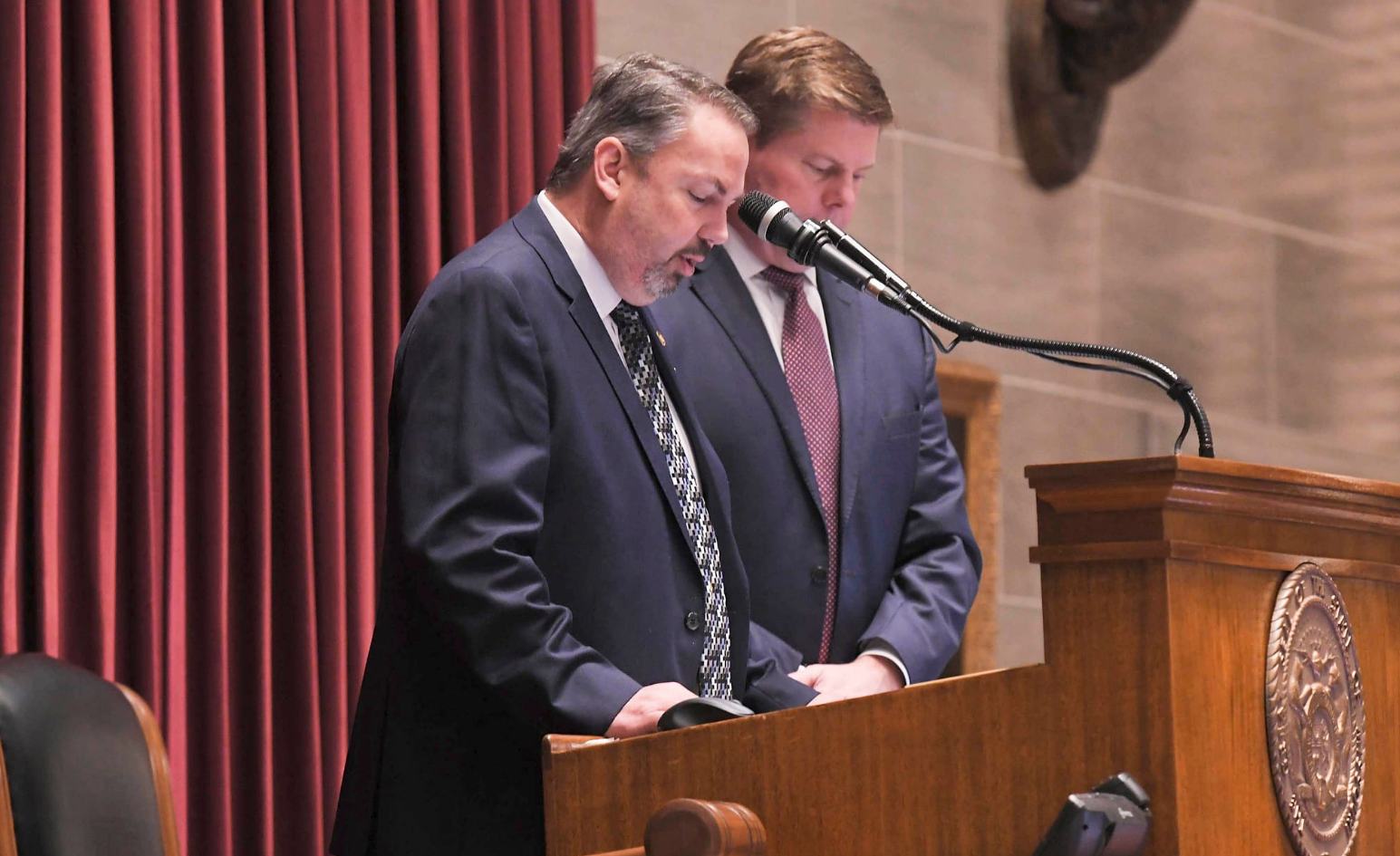
JEFFERSON CITY, Mo. – A new bill introduced in the Missouri legislature would put teachers on the sex offense registry if they “contribute to social transition” of a trans youth- including pronouns, haircuts, information, and more. It would make the actions of the teacher “contributing to social transition” a class E felony.
House Bill 2885 was introduced by Republican State Representative Jamie Ray Gragg (District 140 Christian County), a first term lawmaker who has previously publicly expressed strong anti-LGBTQ+ viewpoints as well as being anti-abortion rights. He sits on four House committees; Children and Families, Elementary and Secondary Education, Healthcare Reform, and Subcommittee on Appropriations- Education.
In the bill, the language reads:
- A person commits the offense of contributing to social transition if
2 the person is acting in his or her official capacity as a teacher or school counselor and
3 the person provides support, regardless of whether the support is material, information,
4 or other resources to a child regarding social transition.
5 2. The offense of contributing to social transition is a class E felony.
6 3. As used in this section, the following terms mean:
7 (1) “Child”, a person under eighteen years of age;
8 (2) “Social transition”, the process by which an individual adopts the name,
9 pronouns, and gender expression, such as clothing or haircuts, that match the
10 individual’s gender identity and not the gender assumed by the individual’s sex at birth;
11 (3) “Teacher”, as that term is defined in subdivisions (4), (5), and (7) of section
12 168.104.
The proposed law prescribes penalties beyond a felony charge in the form of forcing the person convicted to register as a Tier I sexual offender with required annual registration.
Missouri legislative political watchers told the Blade late Thursday that the measure probably will die in committee hearings and should it make it to the floor of the House, passage is unlikely.
Related:
Missouri
Missouri bill would ban companies’ “refusing to deal with” clauses
This recent move comes after recent high-profile cases of companies pulling business with X, formerly Twitter, over rising hate speech

By Erin Reed | JEFFERSON CITY. Mo. – A new bill in Missouri could significantly curtail the ability of companies in the state to pull business with other companies over anti-trans, anti-abortion, or other policies.
The bill, Senate Bill 1061, would ban companies doing business with the state from engaging in “economic boycotts” over a large list of issues, including transgender care and abortion. The boycott ban includes “refusing to deal with” or “terminating business with” other companies over these policies.
This recent move comes after recent high-profile cases of companies pulling business with X, formerly Twitter, over rising hate speech on the platform.
The bill stipulates that companies doing business with the state of Missouri cannot engage in economic boycotts targeted at other companies over issues traditionally supported by conservative politicians. Notably, the ban applies not only to companies doing business with the state of Missouri but also to companies doing business with any political subdivision of the state.
Typically, this includes counties, city governments, public schools, public libraries, and more. This would affect the nearly 700 businesses that have direct contracts with the state, and countless more that have contracts with school boards and local governments.
Under this law, companies that enter into contracts with any of the aforementioned entities would be barred from “refusing to deal with,” “terminating business with,” or otherwise engaging in economic activities designed to penalize a company over that company’s views relating to “not facilitating sex or gender change” or not facilitating “access to abortion.” It also includes other topics, such as boycotts over environmental policies and firearms.
You can see the provisions targeting economic boycotts of other companies, including the abortion and trans provision, here:

The issue of economic boycotts over anti-LGBTQ+ policies has gained rising attention in recent months. Companies have “terminated business activities with” X, formerly Twitter, over its support for hate speech, which, for some, has included anti-LGBTQ+ hate speech. New policies on X include ending a previous policy that protected transgender people from harassment on the platform, including targeted misgendering.
It is unclear if this policy would bar businesses from terminating business with X – companies boycotting the social media platform over Elon Musk’s declaration that he would lobby to criminalize gender affirming care, for instance, might violate the law if they have contracts with Missouri or any city government, school, or library. For example, IBM pulled advertising on X and currently has an open contract with the state.
This bill is not the only one like it in the United States. Over the last year, several others have been proposed with the same language, although all of them have failed to pass. Bills with similar wording have been proposed in Oklahoma, South Dakota, Texas, Ohio, and Iowa.
This approach could, in part, stem from an earlier law targeting a different boycott target: last year, the Eighth Circuit Court of Appeals ruled that a law requiring companies that do business with public entities in Arkansas to not engage in boycotts of Israel could be enforced.
This approach to targeting companies over their commitment to rejecting hate speech is likely to be repeated in several states this year. Increasingly, Republicans are mobilizing state law and enforcement efforts against corporate activism when it does not agree with the Republican platform.
Despite claiming to be in favor of “absolute free speech” and “less regulations,” these supposed values do not clearly apply when companies choose to protect LGBTQ+ people.
****************************************************************************

Erin Reed is a transgender woman (she/her pronouns) and researcher who tracks anti-LGBTQ+ legislation around the world and helps people become better advocates for their queer family, friends, colleagues, and community. Reed also is a social media consultant and public speaker.
Follow her on Twitter (Link)
Website here: https://www.erininthemorning.com/
******************************************************************************************
The preceding article was first published at Erin In The Morning and is republished with permission.
Missouri
Missouri opposes proposed federal rule for LGBTQ foster kids
Missouri’s child welfare agency already offers guidance to foster care providers asking them to use a child’s ‘preferred name and pronouns’
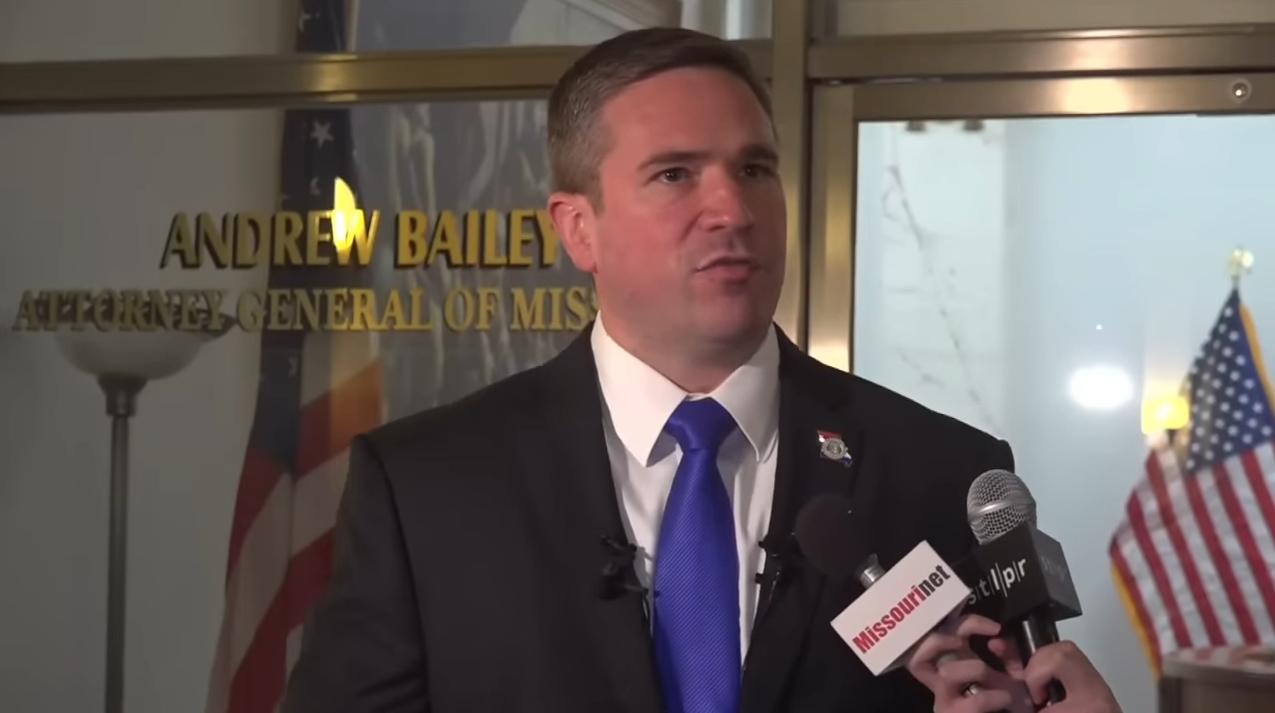
By Clara Bates & Annelise Hanshaw | JEFFERSON CITY, Mo. -Missouri Attorney General Andrew Bailey this week joined with 18 other states to oppose a proposed federal rule that aims to protect LGBTQ youth in foster care and provide them with necessary services.
The attorneys general argue in a letter to the U.S. Department of Health & Human Services that the proposed rule — which requires states to provide safe and appropriate placements with providers who are appropriately trained about the child’s sexual orientation or gender identity — amounts to religion-based discrimination and violates freedom of speech.
“As a foster parent myself,” Bailey said in a news release Tuesday, “I am deeply invested in protecting children and putting their best interests first.”
“Biden’s proposed rule does exactly the opposite by enacting policies meant to exclude people with deeply held religious beliefs from being foster parents.”
The rule is part of a package of federal proposals on foster care and is an extension of the Biden administration’s broader push to protect LGBTQ kids in foster care.
“Because of family rejection and abuse,” the Biden administration said in a September press release, LGBTQ children are “overrepresented in foster care where they face poor outcomes, including mistreatment and discrimination because of who they are.”
State agencies would be required under the rule to provide safe and appropriate foster care placements for those who are “lesbian, gay, bisexual, transgender, queer or questioning, intersex,” along with children who are “non-binary or have non-conforming gender identity or expression.”
A qualifying foster parent would need to be educated on the needs of the child’s sexuality or gender identity and, if the child wishes, “facilitate the child’s access to age-appropriate resources, services, and activities that support their health and well-being.”
An example of a safe and appropriate placement is one where a provider is “expected to utilize the child’s identified pronouns, chosen name, and allow the child to dress in an age-appropriate manner,” according to the proposal, “that the child believes reflects their self-identified gender identity and expression.”
The attorneys general characterize that as “forcing an individual to use another’s preferred pronouns by government fiat,” in violation of the First Amendment.
Robert Fischer, director of communications for Missouri LGBTQ advocacy organization PROMO, said the freedom of religion “doesn’t give any person the right to impose those beliefs on others, particularly to discriminate.”
“Any state official who claims to put ‘children’s interests first’ and in the same breath is willing to risk their well-being and opportunity to thrive in the name of religion — I think that speaks for itself,” Fischer told The Independent.
The rule prohibits retaliation against children who identify as LGBTQ or are perceived as LGBTQ.
Public agencies would need to notify children about the option to request foster homes identified as “safe and appropriate” and tell them how to report concerns about their placement.
Agencies would also have to go through extra steps before placing transgender, intersex and gender non-conforming children in group care settings that are divided by sex.
The “majority” of states, according to the proposed rule, would have to “expand their efforts” to recruit and identify providers who could meet the needs of LGBTQ children.
Missouri guidelines
Laws and policies for protecting LGBTQ youth in foster care — relating to kids’ rights, supports, placement considerations, caregiver qualifications and definitions — currently vary by state.
According to a federal report published in January, which reviewed states’ laws and policies, Missouri does not have laws or policies explicitly addressing any of those five categories.
Most states — 39 states and Washington, D.C. — have “explicit protections from harassment or discrimination based on sexual orientation or gender identity or expression,” according to a federal report, as of January. Missouri is not one of them.
Twenty-two states and D.C. as of January, require agencies to provide tailored services and supports to LGBTQ youth, and eight states and D.C. offer case management and facilitate access to “gender-affirming medical, mental health and social services.”
Children’s Division, the agency within the Missouri Department of Social Services that oversees foster care, offers guidance on their website for providers and child welfare staff in “supporting LGBTQ youth in foster care,” but still does not appear to have official policy on the issue.
A spokesperson for the Missouri Department of Social Services did not respond to a request for comment.
Those guidelines include using the child’s “preferred name and pronouns,” along with establishing a supportive environment and providing “physically and emotionally safe and supportive care and resources regardless of one’s personal attitudes and beliefs.”
The Department of Social Services is part of the administration of Missouri Gov. Mike Parson, and the guidelines were in place the entire time Bailey was serving as Parson’s general counsel — the second highest ranking job in the governor’s office.
Bailey’s spokesperson did not immediately respond when asked whether he raised any objections to the guidelines during his tenure with Parson.
AG arguments

The 19 attorneys general contend the federal rule would “remove faith-based providers from the foster care system” because of their “religious beliefs on sexual orientation and gender identity.”
They cite Fulton v. City of Philadelphia, a U.S. Supreme Court case that ruled a public agency couldn’t force private, religious foster agencies to allow same-sex foster parents.
The proposed rule itself also acknowledges the Supreme Court case and alleges that by not requiring religious foster-care providers to welcome LGBTQ children, it is complying with the court’s precedent.
But the attorneys general do not believe this is enough. Their letter argues the proposal violates freedom of religion because those unwilling to support LGBTQ foster children “would be excluded from providing care to as many as one-third of foster children ages 12-21.”
“In addition to discriminating against religion, the proposed rule will harm children by limiting the number of available foster homes, harm families by risking kinship placements, and harm states by increasing costs and decreasing care options,” the letter says.
The rule would “discourage individuals and organizations of faith from joining or continuing in foster care,” the attorneys general argue, and “reduce family setting options.” Without faith-based foster parents, the attorneys general say, children would be more likely to be placed in congregate settings.
They also say the rule could disqualify family members who volunteer as placement, or kinship care, if the family member does not agree to support the child’s sexuality or gender identity with age-appropriate resources, as the rule entails.
******************************************************************************************

Clara Bates covers social services and poverty. She previously wrote for the Nevada Current, where she reported on labor violations in casinos, hurdles facing applicants for unemployment benefits and lax oversight of the funeral industry. She also wrote about vocational education for Democracy Journal. Bates is a graduate of Harvard College and a member of the Report for America Corps.

Annelise Hanshaw writes about education — a beat she has covered on both the West and East Coast while working for daily newspapers in Santa Barbara, California, and Greenwich, Connecticut. A born-and-raised Missourian, she is proud to be back in her home state.
******************************************************************************************
The preceding article was previously published by the Missouri Independent and is republished with permission.
The Missouri Independent is a nonprofit, nonpartisan news organization dedicated to relentless investigative journalism and daily reporting that sheds light on state government and its impact on the lives of Missourians. This service is free to readers and other news outlets.
Missouri
Missouri school district hears policy on hoax “litter boxes”
Francis Howell Schools held a hearing on a policy that would ban trans students using bathrooms of their gender identity & litter boxes

By Erin Reed | O’FALLON, Mo. – The Francis Howell School District in suburban St. Louis, Missouri, one of the state’s largest, recently held a hearing regarding a new policy aimed at transgender students and their use of bathrooms.
This policy seeks to prevent transgender youth from using restrooms that match their gender identity, while offering only limited alternative options. Additionally, the policy contains provisions concerning the presence of litter boxes in bathrooms, a baseless rumor circulated by several far-right anti-trans websites that has been proven to be a hoax. The school district is scheduled to vote on this policy in November.
The new policy, Policy 2116, would mandate that transgender students may only utilize restrooms corresponding to the gender marker on their birth certificate. While it advises schools to establish a gender-neutral restroom, the policy only designates one such facility per school and does not require its presence on every floor.
The limited availability of gender-neutral restrooms has previously sparked concerns. Relying solely on them can inadvertently disclose a student’s transgender identity. Additionally, these facilities are often inconveniently located from classrooms and are occupied, leading to potential health complications from youth holding in their pee. Notably, the 7th Circuit Court of Appeals determined that “gender-neutral bathrooms” are not a constitutional substitute for allowing transgender individuals to use restrooms matching their gender identity due to these reasons.
The policy dismissively brushes aside these legitimate concerns. It goes so far as to penalize students for “abusing the privilege” of accessing single-use facilities after the imposed ban. If, for example, a student is repeatedly delayed due to the impracticality of such facilities, they risk being barred from using them altogether.
This could result in some schools pushing trans students to use bathrooms corresponding to their sex assigned at birth, simply because the only facility provided is too out of the way for practical use.
See this section of the policy here:
The policy doesn’t stop there. It specifically notes that “Except as necessary due to a physical or kinetic disability, only toilets and urinals shall be used to discharge human waste within restrooms or single-use restrooms.” This seems to allude to the unfounded “litter boxes in classrooms” myth, propagated by Libs of TikTok—a right-wing account notorious for fueling transphobic harassment and violence. The claim is that students “identifying as cats” have demanded litter boxes. To this day, no verified incidents of litter boxes being used in schools exist, except for an isolated case in the late 2010s where kitty litter was stored in classrooms as a precautionary measure during school shootings.
See the section on litter boxes here:
The organization responsible for the election of many of the candidates confirmed this in its published materials. Francis Howell Families, a right-wing organization opposing transgender rights and DEI initiatives, stated that the policy “mandates that only toilets and urinals can be used to dispose of human waste (in other words, no cat litter-boxes for staff to clean up).” The conservative PAC actively campaigns for school board members with anti-trans views and five school board members are backed by this organization.
This is not the first time Francis Howell Families candidates have taken controversial positions and actions. In July, the school board voted to do away with an anti-racism statement. The district is 87% white.
The transgender bathroom policy ignited a tumultuous hearing, drawing numerous people vehemently opposed to enacting it. Amy Easterling, an advocate from Francis Howell Forward, vocally criticized the policy, stating, “The first read of policy 2116 puts our transgender and gender non-conforming students in the crosshairs of a manufactured culture war.” She then chastised the board for succumbing to the litter box myth.
See her testimony:
Though it seems unlikely that this bill will be stopped via vote, it will almost certainly lead to a lawsuit. Becky Hormuth, another voice at the hearing and the parent of a transgender child, stated emphatically, “If this policy passes, my family has no choice but to seek further legal action against the Francis Howell board of education, because inclusivity is not only a moral imperative, it is also a legal one.” Such a policy might come at a steep financial cost for the school board, potentially over a million dollars as seen in other similar lawsuits. In November, the school board will have to weigh whether a policy that discriminates against transgender students is worth such a gamble.
****************************************************************************

Erin Reed is a transgender woman (she/her pronouns) and researcher who tracks anti-LGBTQ+ legislation around the world and helps people become better advocates for their queer family, friends, colleagues, and community. Reed also is a social media consultant and public speaker.
Follow her on Twitter (Link)
Website here: https://www.erininthemorning.com/
******************************************************************************************
The preceding article was first published at Erin In The Morning and is republished with permission.
Missouri
Liver damage, caused by COVID drug- not HRT says trans family
Explosive allegations have emerged about allegations against a gender affirming care clinic in Missouri by an employee
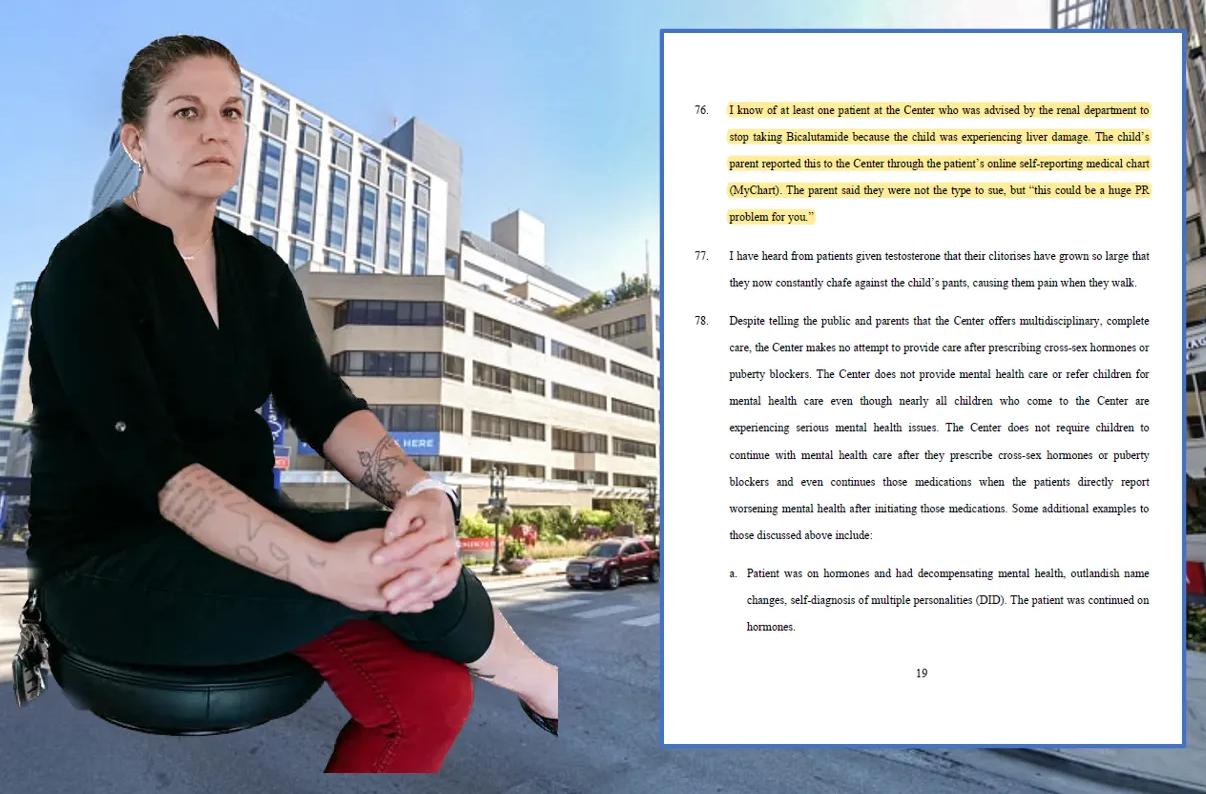
By Erin Reed | SAINT LOUIS, Mo. – In February, Jamie Reed, a worker who handled patient intake forms and emails, brought forth a series of explosive allegations against the Washington University School of Medicine’s gender clinic.
Among these allegations were claims that the university was “harming” trans youth by supporting their transition and offering gender-affirming care. Her accusations, first seen in The Free Press, contained several misrepresentations about gender-affirming medical care. In the months that followed, a number of families have come forward, asserting that Reed has lied their care.
On Thursday, investigative reporters from KMOV4’s First Alert 4 team, after speaking with one such family, uncovered a pivotal inaccuracy that could damage Jamie Reed’s credibility: a trans teen’s liver damage was likely caused by a COVID medication, not the hormone blocking medication she was on.
In Jamie Reed’s allegations against the gender clinic, she claimed that one trans girl (who she intentionally misgenders and uses male pronouns for) was sent to another unit of the hospital and immediately taken off the drug after she experienced liver damage:
“As with most cancer drugs, bicalutamide has a long list of side effects, and this patient experienced one of them: liver toxicity. [She] was sent to another unit of the hospital for evaluation and immediately taken off the drug. Afterward, [her] mother sent an electronic message to the Transgender Center saying that we were lucky her family was not the type to sue.”
This allegation was one of a handful of claims that the gender affirming care clinic was harming trans youth despite following international protocol for their care. This claim even appeared in Reed’s sworn affidavit to Attorney General Andrew Bailey, who has personally opposed gender affirming care and who led an effort to ban such care for many transgender adults earlier this year, before those efforts were blocked in court.
You can see this allegation here:
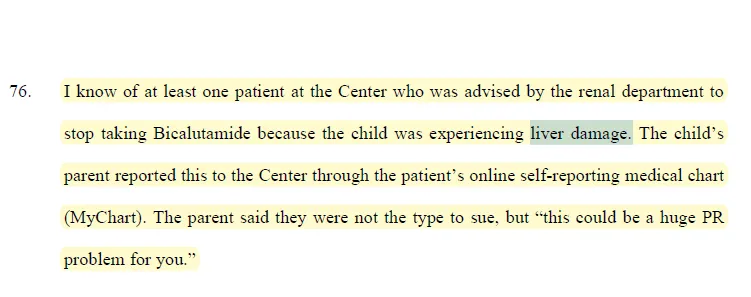
The family provided medical records to the investigative team, demonstrating that the liver damage occurred after the intake of a COVID medication known to cause such harm, not from bicalutamide. Moreover, the family pointed out that Jamie Reed omitted a crucial part of their communication with the gender-affirming care clinic concerning the event.
In the lines following the section of their email mentioned in Jamie Reed’s accusations, the family wrote, “we don’t regret any decision and would never have denied our daughter these life-saving treatments.” Jamie Reed’s allegations indeed leave this portion of the email out of her reporting.
This is not the first time Reed’s allegations have come under dispute by families who were treated at the clinic.
An article in the Missouri Independent featured multiple families contesting her assertions. Several parents, for example, noted prolonged waits spanning months and numerous visits to receive care, contradicting Reed’s allegations of patients being rushed into treatment.
Another family highlighted that their trans child was advised to “put surgery out of your mind until you’re 18,” conflicting with Reed’s claim that the center made surgical referrals. Jess Jones, a colleague of Reed, corroborates this, mentioning the clinic never made such referrals. Jones further claims that Reed proposed patients undergo IQ tests to qualify for gender-affirming care, a procedure neither endorsed by any leading medical institution nor backed by scientific validation.
Despite this, Reed’s allegations have been used by those who oppose care for transgender youth. In Missouri, Senate Republicans cited Jamie Reed’s claims to pass a gender affirming care ban for trans youth in the state.
She has submitted sworn testimony in favor of gender affirming care bans for trans youth in other states, such as Indiana.
In Nebraska, a legislator incorrectly referred to Reed as a doctor, and stated that her allegations justify banning gender affirming care for trans youth. Her credibility directly has played a role in these bans.
Jamie Reed’s platform continues to grow among pseudoscience organizations like SEGM and Genspect, which are both holding conferences in the next month. She will be speaking at both of these conferences alongside noted anti-trans activists such as James Lindsey, who played a role in the proliferation of the “groomer” slur for LGBTQ+ people and allies, and Stella O’Malley, who has called transgender children fetishists who deserve “no empathy.”
For her former patients and trans youth worldwide, however, her platform comes at their expense, and her assertions, despite lacking credibility, have helped lead to a loss of their care.
****************************************************************************

Erin Reed is a transgender woman (she/her pronouns) and researcher who tracks anti-LGBTQ+ legislation around the world and helps people become better advocates for their queer family, friends, colleagues, and community. Reed also is a social media consultant and public speaker.
Follow her on Twitter (Link)
Website here: https://www.erininthemorning.com/
******************************************************************************************
The preceding article was first published at Erin In The Morning and is republished with permission.
Missouri
‘Trans is beautiful’ Missouri high school senior says, defies haters
Young told the Kansas City Star newspaper that the hatred would not deter her from living her life authentically

NORTH KANSAS CITY, Mo. – In a recent interview with the Kansas City Star newspaper, 17-year-old Tristan Young described the joy she felt when two weeks ago her peers at suburban Oak Park High School had chosen her for their 2023 homecoming queen.

(Photo Credit: Oak Park High School North Kansas City School District/Facebook)
As the Young approached midfield at half-time in the game, along with the four other nominees, she told the Star she heard the roar of her classmates cheering and applauding at the sound of her name. She was chosen queen and for the transgender senior it was ‘the’ moment.
“I was so overwhelmed,” Young told the Star. “I thought I was never going to be in this position. And, in that moment, I had tears welling in my eyes because I just felt so supported. And I just felt like, this school wants me to be who I am, and not who other people want me to be.”
However, the next day Young was caught up in an explosion of transphobic hate speech and threats from across the United States.
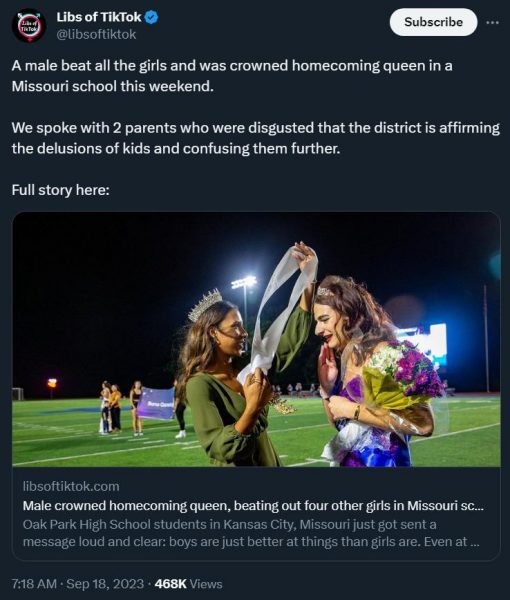
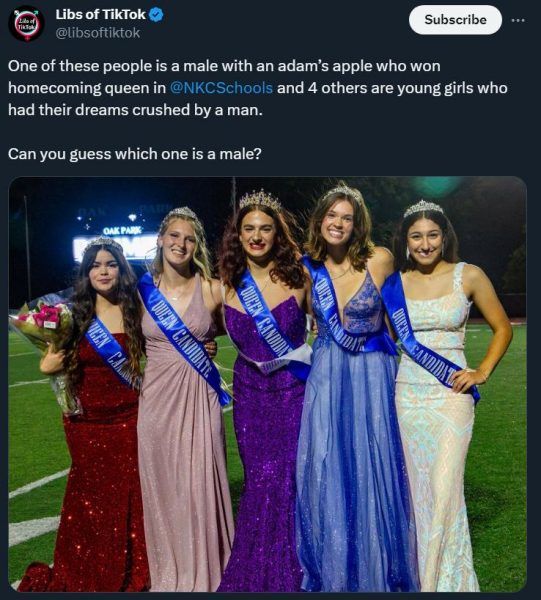
The transphobic hate and threats was spread on Facebook, Instagram, and on X, formerly known as Twitter, where the notorious Libs of TikTok, a handle for the far-right anti-LGBTQ+ hate speech social-media accounts operated by Chaya Raichik- a former Brooklyn, New York real estate agent, spread the anti-trans messaging directed at Young.
Libs of TikTok has millions of followers and the account’s vitriol and hate speech has in the past fomented and instigated threats against the LGBTQ+ community and allies.
The Star also reported that with the deluge of hatred directed at the teenager, family members including a sister attending university in Boston became alarmed and called home.
“She was worried about Tristan being safe,” said Chari Young, the senior’s mother told the Star.
Responding to the threats Young told the paper,
“The comment that has stuck with me,” Young said, “was that I should have been dragged off the field by my hair and beaten up.”
While no one is certain how the news spread nationally, although once Raichik posted about young, the inevitable tsunami of hate followed. Ironically the Star reported that Young was in fact the second transwoman crowned homecoming queen at Oak Park High.
Nearly 8 years to the day on September 15, 2015, Landon Patterson, 18, was named homecoming queen.

Young told the paper that the hatred would not deter her from living her life authentically.
“I’m just not one of those people,” Young said. “I like to stay strong. I don’t really buckle unless something is really wrong. Right now, what’s happening is people are trying to turn a joyous thing into something that I should regret. But it’s going to stay a joyous thing.” She added that ‘Trans is beautiful.”
Local advocacy groups and others including former trans homecoming queen Patterson have rallied to the teen’s side.
Justice Horn, the chair of the Kansas City LGBTQ Commission, posted on X: “I uplift this against the transphobic comments against this young person.”
I want to pause and congratulate Tristan for being crowned Oak Park High School’s Homecoming Queen! 👑
— Justice Horn (@JusticeHorn_) September 19, 2023
I uplift this against the transphobic comments against this young person who was named queen by their peers. I’m thankful the next generation of Kansas City is so kind. 💓 https://t.co/MDpsuQJ14T
“I told her stay strong. You’re gorgeous. You’re beautiful. And no matter what these people say, they can’t take away this crown. They can’t take away this moment from you,” Patterson told The Star, adding, “Everything is amplified as a kid. Choosing yourself over everyone else’s opinion takes a lot of courage and bravery. … All these things that they said about her, that they said about me, what they say about trans people, it’s truly just ignorance. They probably don’t even know a trans person. They’re just saying things to be hateful. “Being trans is a reality. This is our life. It’s not going away.”
Additional reporting by the Kansas City Star and wire service reports.
Watch:
-

 Arts & Entertainment3 days ago
Arts & Entertainment3 days ago2026 Best of LGBTQ LA Finalist Voting
-

 Health4 days ago
Health4 days agoWhere medicine meets dignity: Be Well Medical Group founder Isaac Berlin is here and queer to serve the community
-

 Out & About4 days ago
Out & About4 days agoQueer, trans AAPI joy shone at this year’s Golden Dragon Parade
-

 Mexico5 days ago
Mexico5 days agoUS Embassy in Mexico issues shelter in place order for Puerto Vallarta
-

 Commentary3 days ago
Commentary3 days agoWhen optics matter more than harm: BAFTA, BBC, and editing solidarity while letting slurs slide on through
-

 California3 days ago
California3 days agoExperts discuss pathways forward as anti-trans violence continues to rise
-

 Autos4 days ago
Autos4 days agoGoing for gold: Ford Bronco Sport vs. Toyota RAV4
-

 a&e features3 days ago
a&e features3 days agoRevry Co-Founder Damian Pelliccione on why we need ‘King of Drag’
-

 Books3 days ago
Books3 days agoNew book profiles LGBTQ+ Ukrainians, documents war experiences
-

 Books2 days ago
Books2 days agoThe social side of self-pleasure: Artist Jason Wimberly presents his newest book of photography, HOMOSOCIAL













